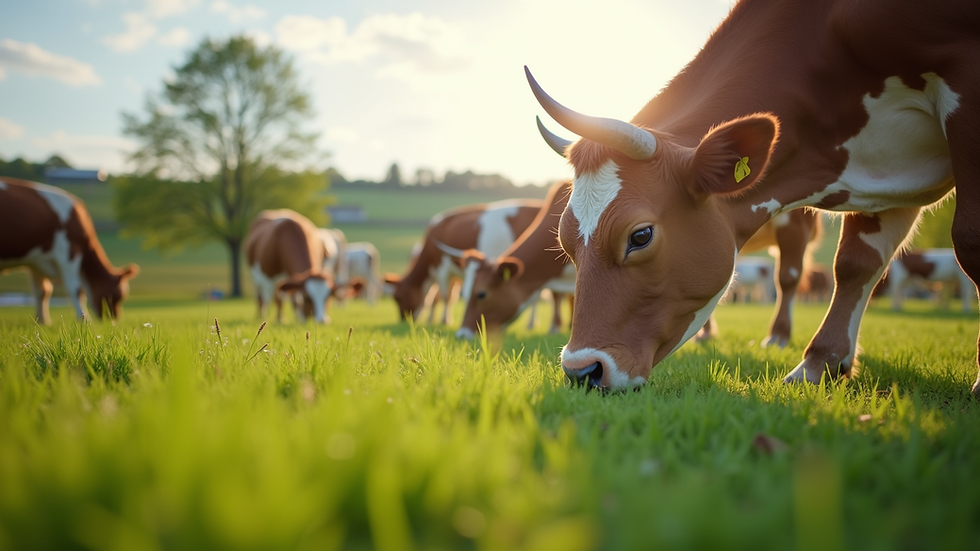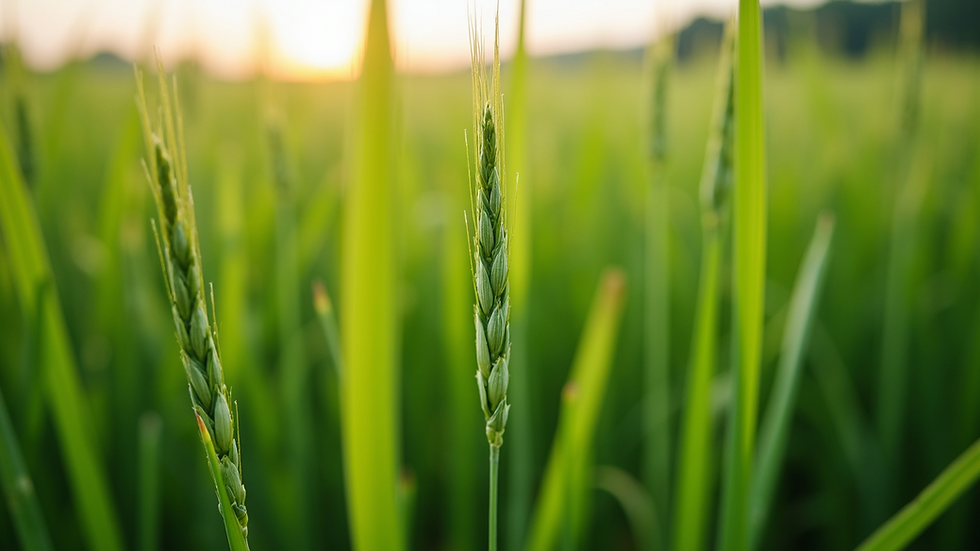Sustainable Farming Methods for Ethical Meat Production
- anddeleonfuentes
- Sep 3, 2025
- 4 min read
When it comes to meat production, I believe we can do better. Ethical meat means more than just the final product on your plate. It’s about how animals are raised, how the land is treated, and how communities benefit. That’s why I’m excited to share some sustainable agriculture methods that make a real difference. These methods not only protect the environment but also ensure healthier, tastier meat for families who care about quality and ethics.
Why Sustainable Agriculture Methods Matter in Meat Production
Sustainable agriculture methods are essential for ethical meat production. They help maintain soil health, reduce pollution, and promote animal welfare. When farmers use these methods, they create a balanced ecosystem that supports long-term productivity. This means the land stays fertile, water stays clean, and animals live in natural, stress-free environments.
For example, rotational grazing is a simple yet powerful technique. It involves moving livestock between pastures to prevent overgrazing. This allows grass to recover and grow back stronger. Healthy grasslands absorb carbon dioxide, reduce erosion, and provide nutritious feed for animals. The result? Beef that’s not only better for you but also better for the planet.

Exploring Sustainable Agriculture Methods in Depth
Let’s dive into some of the most effective sustainable agriculture methods used in ethical meat production. These practices are practical, proven, and accessible for local farms aiming to deliver quality beef.
1. Rotational Grazing
As I mentioned, rotational grazing is a game-changer. By dividing pastures into smaller sections and rotating animals regularly, farmers prevent soil degradation. This method mimics natural herd movements and encourages diverse plant growth. It also reduces the need for chemical fertilizers and pesticides.
2. Integrated Pest Management (IPM)
IPM focuses on controlling pests with minimal environmental impact. Instead of relying on harsh chemicals, farmers use natural predators, crop rotation, and habitat management. This keeps the ecosystem balanced and protects beneficial insects that support healthy pastures.
3. Cover Cropping
Planting cover crops during off-seasons protects soil from erosion and adds organic matter. Cover crops like clover or rye improve soil structure and fix nitrogen naturally. This means less reliance on synthetic fertilizers and healthier pastures for grazing animals.
4. Water Conservation Techniques
Efficient water use is critical. Sustainable farms install water troughs that reduce waste and use rainwater harvesting systems. These methods ensure animals have clean water without depleting local resources.
5. Ethical Animal Husbandry
Treating animals with respect is at the heart of ethical meat production. This includes providing ample space, natural diets, and minimizing stress. Healthy animals produce better meat, and it feels good knowing they lived well.
If you want to learn more about how these methods come together in real life, check out sustainable farming practices at 2 Creeks Cattle Company. They’re a great example of a family-owned farm committed to these principles.

Which Would Be the Best Example of Sustainable Farming?
If I had to pick one shining example of sustainable farming, it would be a farm that combines all these methods seamlessly. Imagine a place where cattle graze on rotating pastures, cover crops flourish in the off-season, and water is conserved carefully. The animals are raised humanely, and the land is nurtured continuously.
2 Creeks Cattle Company fits this description perfectly. They focus on grass-fed beef raised with care and respect. Their approach reduces environmental impact and supports local families with fresh, wholesome meat. This model shows how sustainable agriculture methods can thrive in the DFW area, offering a blueprint for others to follow.
What makes this example stand out is the balance between tradition and innovation. They honor family values while embracing modern techniques that protect the earth. It’s a win-win for everyone involved.

Practical Tips for Supporting Ethical Meat Production
You might be wondering how you can support ethical meat production in your own life. Here are some simple steps that make a big impact:
Buy local and in bulk: Purchasing from local farms like 2 Creeks Cattle Company helps reduce transportation emissions and supports sustainable farmers.
Choose grass-fed and pasture-raised: These labels often indicate better animal welfare and environmental practices.
Ask questions: Don’t hesitate to learn about the farm’s methods. Transparency is a sign of trustworthiness.
Cook thoughtfully: Use the whole animal when possible to reduce waste and appreciate the effort behind every cut.
Spread the word: Share what you learn about sustainable farming with friends and family.
By making informed choices, you encourage more farms to adopt sustainable agriculture methods. It’s a ripple effect that benefits the environment, animals, and your community.
Looking Ahead: The Future of Ethical Meat Production
I’m optimistic about the future of ethical meat production. As more people demand transparency and sustainability, farms will continue to innovate. Technology will help monitor soil health and animal welfare, while traditional knowledge keeps us grounded.
Supporting farms that prioritize sustainable farming practices is key. It ensures that future generations can enjoy quality meat without compromising the planet. Plus, it strengthens local economies and preserves family-owned farms.
If you’re interested in making a positive change, consider exploring local options and learning more about how your food is raised. Together, we can build a healthier, more ethical food system.
I hope this post inspires you to think differently about meat production. Sustainable agriculture methods are not just buzzwords - they’re practical, effective ways to care for the land and animals. And when you choose ethically raised beef, you’re making a choice that benefits everyone. Thanks for reading!



Comments